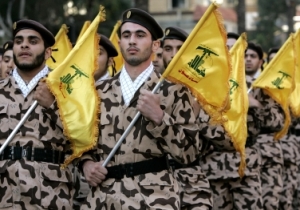 Lebanon is bracing for another showdown. When Syria’s troops withdrew from the country six months ago, the Lebanese hoped to have seen the last of foreign forces inside their borders but Syrian backed Palestinian guerrillas are emerging as a fresh threat to Lebanon’s stability. They are part of a 350,000-strong Palestinian population who have been in Lebanon since Israel’s war of independence in 1948.
Lebanon is bracing for another showdown. When Syria’s troops withdrew from the country six months ago, the Lebanese hoped to have seen the last of foreign forces inside their borders but Syrian backed Palestinian guerrillas are emerging as a fresh threat to Lebanon’s stability. They are part of a 350,000-strong Palestinian population who have been in Lebanon since Israel’s war of independence in 1948.
Last week, after a surveyor was shot near the south eastern Lebanese village of Sultan Yacoub, hundreds of Lebanese troops and commandos surrounded mountainous outposts manned by two radical Palestinian factions. They demanded that a suspect be handed over for investigation. Palestinian fighters, who before last week often welcomed visitors with glasses of tea and conversation, went on alert, planting remote-control roadside bombs on tracks around their bases and hunkering down in bunkers dug into the steep terrain in preparation for a possible Lebanese army assault. A statement issued by the one of the factions, the Popular Front for the Liberation of Palestine-General Command, warned: "We will not sit back handcuffed if we are attacked." At the scene of the tense standoff, a Lebanese army officer told Time, "We are ready for anything."
The growing tension on the ground was mirrored in diplomatic circles as the United Nations last week published another report criticizing Syrian interference in Lebanon. A U.N. investigation had recently alleged Syrian involvement in Hariri’s assassination; the latest report cites "an increasing influx of weaponry and personnel from Syria" to armed factions who enjoy relative autonomy inside Palestinian refugee camps. The smuggling is in defiance of Lebanese Prime Minister Fouad Siniora’s plan to clamp down on Palestinian guerrillas. Some view the arms buildup as a sly Syrian bid to derail the U.N.’s ongoing probe into Hariri’s killing by rekindling the hostilities that plunged Lebanon into its 1975-1990 civil war, which was ignited by clashes between Palestinians and a Christian militia.
In the conclusion of his report, U.N. Special Envoy Terje Roed-Larsen notes that the withdrawal of Syrian forces gave Lebanon the chance "to shape a new future of self-determination, independence, coexistence and peace." Unfortunately, that may depend on the Palestinian guerillas in Lebanon, and their backers in Syria, as much as on the Lebanese themselves.



